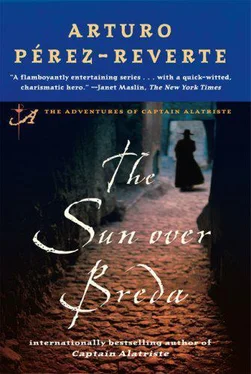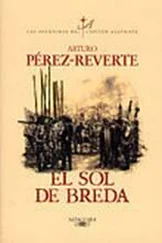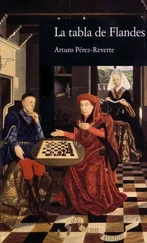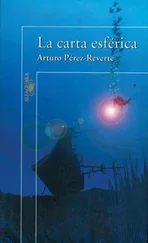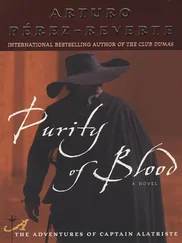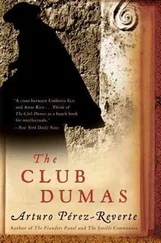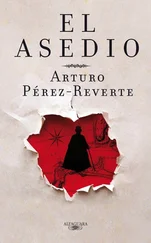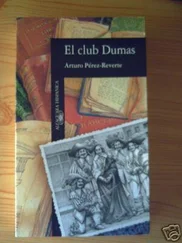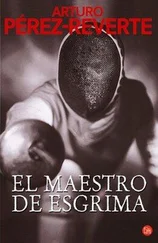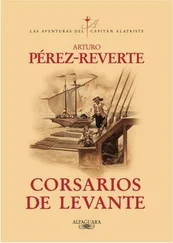Arturo Pérez-Reverte - The Sun Over Breda
Здесь есть возможность читать онлайн «Arturo Pérez-Reverte - The Sun Over Breda» весь текст электронной книги совершенно бесплатно (целиком полную версию без сокращений). В некоторых случаях можно слушать аудио, скачать через торрент в формате fb2 и присутствует краткое содержание. Жанр: Старинная литература, на английском языке. Описание произведения, (предисловие) а так же отзывы посетителей доступны на портале библиотеки ЛибКат.
- Название:The Sun Over Breda
- Автор:
- Жанр:
- Год:неизвестен
- ISBN:нет данных
- Рейтинг книги:5 / 5. Голосов: 1
-
Избранное:Добавить в избранное
- Отзывы:
-
Ваша оценка:
- 100
- 1
- 2
- 3
- 4
- 5
The Sun Over Breda: краткое содержание, описание и аннотация
Предлагаем к чтению аннотацию, описание, краткое содержание или предисловие (зависит от того, что написал сам автор книги «The Sun Over Breda»). Если вы не нашли необходимую информацию о книге — напишите в комментариях, мы постараемся отыскать её.
The Sun Over Breda — читать онлайн бесплатно полную книгу (весь текст) целиком
Ниже представлен текст книги, разбитый по страницам. Система сохранения места последней прочитанной страницы, позволяет с удобством читать онлайн бесплатно книгу «The Sun Over Breda», без необходимости каждый раз заново искать на чём Вы остановились. Поставьте закладку, и сможете в любой момент перейти на страницу, на которой закончили чтение.
Интервал:
Закладка:
The city hall burned right down until there was nothing left but the weathervane. I was with Jaime Correas, both of us happy that we had saved our hides at the gate of the bulwark and that we had carried out our assigned mission to the satisfaction of all, except, of course, the Dutch. In my knapsacks, recovered after the fight and still stained with the blood of the Dutchman with the blond mustache, we stowed everything of value we could find: silver cutlery, a few gold coins, a gold chain we had taken from the corpse of a burgher, and a new and magnificent pair of pewter jugs. My companion had donned a handsome plumed morion that had belonged to an Englishman who no longer had a head on which to display it, and I was strutting around in a fine silver-trimmed red velvet doublet I’d found in an abandoned house we had ransacked at our pleasure.
Jaime, like me, was a mochilero , that is, a lowly aide or soldier’s page, and together we had lived through enough exhaustion and hardship to think of ourselves as good comrades. For Jaime, the booty and the success of events at the drawbridge, which don Carmelo Bragado, the captain of our company, had promised to reward if all went well, was consolation for having been disguised as a girl; we had drawn lots for that, but it had nonetheless left him somewhat embarrassed. As for me, by this point in my Flanders adventure I had decided that I wanted to be a soldier when I reached the required age, and all the excitement had induced a kind of vertigo, a youthful intoxication tasting of gunpowder, glory, and exaltation. That is how, ’fore God, a lad the same age as the number of lines in a sonnet comes to witness a war when the goddess Fortuna decrees that he will not play the part of victim but of witness and, at times, of precocious executioner. But I have already told Your Mercies, on a different occasion, that those were times when a life, even one’s own, was worth less than the steel used to take it. Difficult and cruel times. Hard times.
I was telling you that we had reached the square of the city hall, and we stayed there awhile, fascinated by the fire and the dead Englishmen, many of whom were blond or red-haired and freckled, piled up naked by the doors. From time to time we came across Spaniards laden with booty or groups of terrified Hollanders watching from the columns of the square, huddled together like sheep under the watchful eyes of our comrades, who were armed to the teeth. We went over to take a look. There were women, old men, and children but few adult males. I recall a youth about our age who looked at us with an expression somewhere between sullen and curious, and blond, pale-skinned women who stood wide-eyed beneath their white headdresses, their blue, fearful eyes observing our dark-haired soldiers. Our men were not as tall as the Flemish men, but they had full mustaches, heavy beards, and strong legs. Each had a musket over his shoulder and a sword in his hand, and each was clad in leather and metal stained with grime, blood, gunpowder, and mud from the dike. I will never forget the way those people looked at us Spaniards, there in Oudkerk as in so many other places: the blend of hatred and fear when they saw us enter their cities and march past their houses, covered with the dust of the road, bristling with iron, and ragged as urchins, boisterous at times but more dangerous when not. Proud, even in misery, as Bartolomé Torres Naharro wrote in his Soldadesca.
In war, come what may, there is this much I can say, if a man has two hands gold will surely roll his way.
We were the loyal infantry of the Catholic king: volunteers, all of us, in search of fortune or glory; men of honor but often also the dregs of the Spanish empire; rabble given to mutiny, who demonstrated flawless iron discipline but only when facing enemy fire. Dauntless and terrible even in defeat, the Spanish tercios , a training school for the best soldiers Europe had produced in two centuries, comprised the most efficient military machine anyone had ever commanded on a field of battle. Although at that time, with the age of the great assaults over and with artillery taking the fore, the war in Flanders had become one long succession of sieges, of mines and trenches, and our infantry was no longer the splendid military force our great Philip II had put his faith in when he wrote his famous letter to his ambassador to the pope:
I do not plan, nor do I wish, to be the lord of heretics. Yet if the situation cannot be remedied as I would have it, without resorting to weapons, then I am determined to take them up, and neither the danger in which I place myself nor the ruin of those lands, nor of the rest of those still mine, can prevent me from doing what a Christian, God-fearing prince must do in His service.
And that, pardiez , is how it was. After long decades of crossing swords with half the world without achieving much more than icy feet and hot heads, very soon there would be nothing left for Spain than to watch her tercios die on fields of battle like the one at Rocroi, faithful to their reputation—lacking anything else—taciturn and impassive when their lines formed into those “human towers and walls” the Frenchman Bossuet wrote of with such admiration. But yes, there is this: We fucked them good and hard. Even though our men and their generals were no equal to those in the days of the Duque de Alba and Alejandro Farnesio, Spanish soldiers continued to be Europe’s nightmare for some time: they who had captured a French king in Pavia, triumphed in San Quintín, sacked Rome and Antwerp, taken Amiens and Ostend, killed ten thousand enemies in the attack on Jemmigen, eight thousand in Maastricht, and nine thousand in Sluys, wielding steel in water up to their waists. We were the very wrath of God, and it took only one glance at us to understand why: We were a rough and rowdy horde from the dry lands of the south, fighting in hostile foreign lands where there was no possible retreat and defeat meant annihilation. Driven men, some by the poverty and hunger they meant to leave behind and others by ambition for land, fortune, and glory, to whom the song of the gentle youth in Don Quijote might apply:
It is necessity that carries me to war; for had I money, I would ne’er have come this far.
And those other old and eloquent lines:
I do battle out of need, and once seated in the saddle, Castile grows ever vaster beneath the hoofbeats of my steed.
So. The fact is that we were still there and would continue thus for several years more, enlarging Castile with the blades of our swords or as God and the devil had taught us in Oudkerk. The banner of our company was flying from the balcony of a house in the square, and my comrade, Jaime Correas, who was a mochilero in the squad of Second Lieutenant Coto, went there to look for his people. I went on a bit farther, past the front of the city hall to escape the terrible heat of the fire, and as I rounded the building I saw two individuals piling up the books and documents they were carrying out of the door as fast as they could. What they were doing did not appear to be pillaging—it would be rare in the midst of widespread sacking for anyone to bother about books—but instead they seemed to be rescuing what they could from the fire. I went to take a closer look. Your Mercies may recall that I had some experience of the written word from my days in la Villa y Corte de las Españas, that is, Madrid, owing to my friendship with don Francisco de Quevedo, who had given me Plutarch to read; Dómine Pérez’s lessons in Latin and grammar; my taste for Lope’s theater; and my master Captain Alatriste’s habit of reading wherever there was a book to be read.
Читать дальшеИнтервал:
Закладка:
Похожие книги на «The Sun Over Breda»
Представляем Вашему вниманию похожие книги на «The Sun Over Breda» списком для выбора. Мы отобрали схожую по названию и смыслу литературу в надежде предоставить читателям больше вариантов отыскать новые, интересные, ещё непрочитанные произведения.
Обсуждение, отзывы о книге «The Sun Over Breda» и просто собственные мнения читателей. Оставьте ваши комментарии, напишите, что Вы думаете о произведении, его смысле или главных героях. Укажите что конкретно понравилось, а что нет, и почему Вы так считаете.
